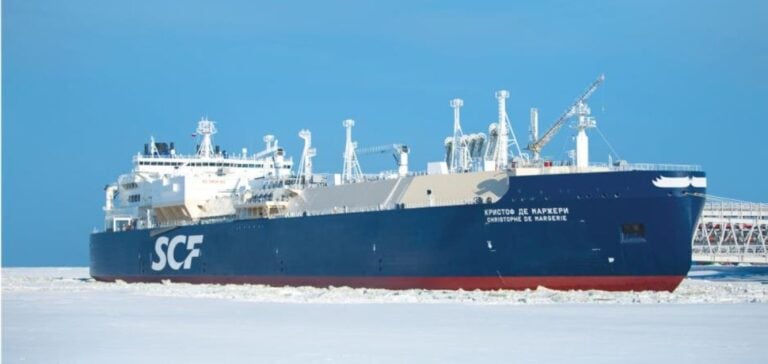The Arc7 LNG carriers, with a capacity of 172,600 cubic meters, are designed to operate in the icy conditions of the Arctic, making them particularly suitable for Novatek‘s Arctic LNG 2 project. Their construction is specialized for transporting LNG under extreme conditions, with significant technological innovations.
Impact of sanctions on the use of LNG carriers
Following Russia’s invasion of Ukraine, international sanctions against the project were imposed, making the use of these vessels to transport Russian LNG less attractive. In particular, the sanctions have affected the feasibility of their initial mission, forcing market players to reconsider their deployment.
Redeployment options and economic challenges
Converting Arc7s into FSRU units or conventional transporters is deemed economically unrealistic due to their specialization. Maritime experts point out that ships are too specialized to be effectively redeployed outside their original role.
Market outlook and strategies
Despite the current challenges, some market experts foresee an eventual resumption of Russian LNG shipping, which could reintegrate Arc7 LNG carriers into their planned Arctic operations. Shipbrokers in Asia and Europe are talking about the possibility of a long-term return to the use of these vessels, depending on future regulations and market developments. In particular, market players in China and India continue to be major consumers of Russian LNG, underlining Russia’s importance as a key supplier despite the sanctions.
Lease rates for LNG carriers, including Arc7 LNG carriers, have been impacted by sanctions and market conditions. S&P Global Commodity Insights data show significant price fluctuations, reflecting current uncertainty.






















